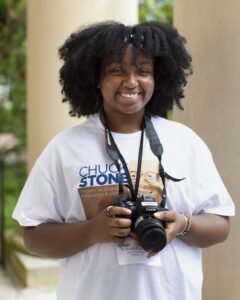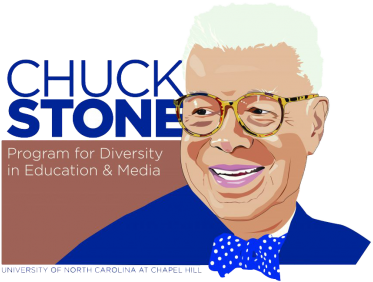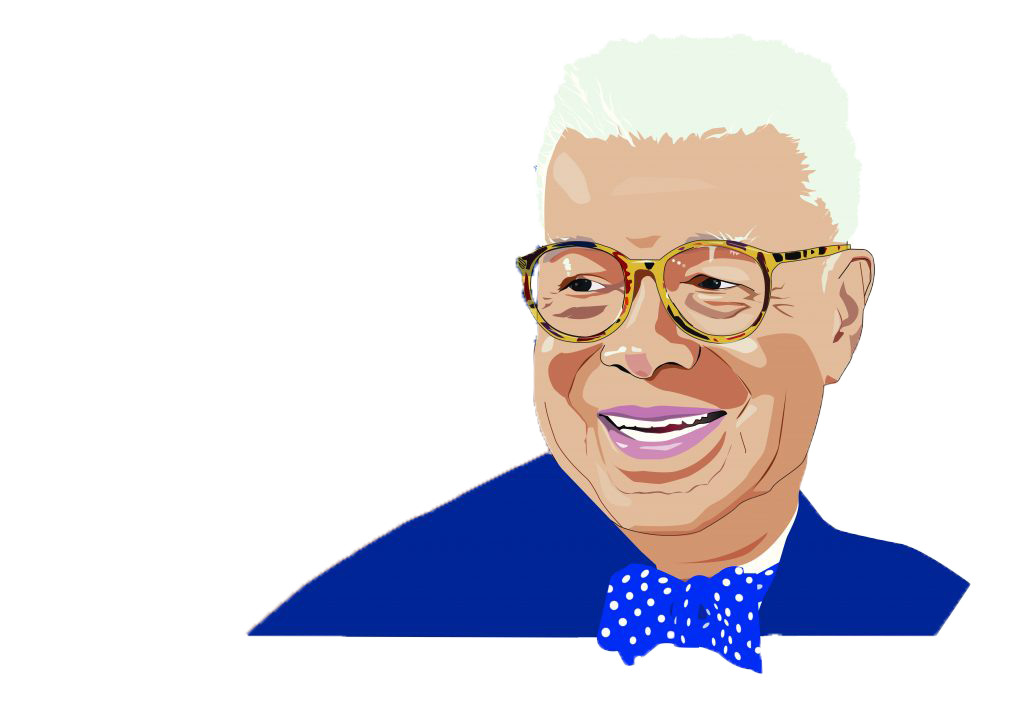Vivian Njoroge
 By Alex Connors
By Alex Connors
Charlotte Country Day School ‘24
In February, Enloe High School rising senior, Vivian Njoroge had a conversation with a fellow transfer student about his former school.
The high school he attended was strict about reciting the Pledge of Allegiance daily.
Njoroge deemed this unfair. “It’s not fair to the students who have to stand for the pledge, what if they don’t agree with it,” she said.
Soon thereafter, her opinion piece on the Pledge of Allegiance , called “I Pledged Allegiance To Your Flag. Now What?” was published in her school’s newspaper. Throughout it, Njoroge breaks down the Pledge of Allegiance line by line, exposing the hypocrisy of the beloved American tradition and what it means to her as an African-American young woman.
Born in Limuru, Kenya and raised in Raleigh, Njoroge has experienced a unique cultural contrast that she claims has made her more passionate about connecting to her identity, and writing pieces for her school’s newspaper that are an ode to her African and American heritage.
Njoroge highlights the positive connections between her Kenyan identity and her American identity, asserting herself as a cross-cultural trailblazer. She leads the Equity Club at Enloe, which works to connect the rainbow of cultures that attend the school.
“It helps me understand that there isn’t just one way to be Black,” Njoroge said.
Njoroge attends a diverse school. But it’s in North Carolina, a state with history tainted by white supremacy, that continues to be a political battleground. Not everyone at school was receptive to Njoroge’s message: Students should not be forced to say or stand for the Pledge of Allegiance.
Soon after the article was published in Enloe High School’s newspaper, Njoroge was met with intense backlash from anonymous social media accounts, her peers and even faculty members.
“I didn’t mind the backlash because it started a conversation,” Njoroge said.
“I write things that people can follow and are straightforward,” she said. “I give disclaimers noting that I don’t speak for the entire Black community.”
Njoroge’s piece is a reminder that speaking one’s truth is necessary in this day and age. In this case, it was what the American flag symbolizes to groups that have been historically discriminated against.
“I need to talk about this, or else we’ll just keep going around in circles,” Njoroge said.

